IRON VISION VALUE VENTURES


I arrived in the BMW X7 M Sport for the Venture Vault, a two-day intensive workshop held on 17- 18 May 24, designed by LWL in collaboration with Homage to help grasp brand brilliance, strategy, scalability, marketing, and consistency in order to accelerate growth and acquire a competitive edge.

Ladies Who Lead (LWL) organised a series of focused learning sessions called Venture Vault, which were led by prominent founders and industry leaders and curated in collaboration with Homage, the office of Aditya Ghosh (Co-founder, Akasa Airlines and Chief Mentor at Ladies Who Lead), to gain actionable insights and tools for effectively building and scaling your business and brand.
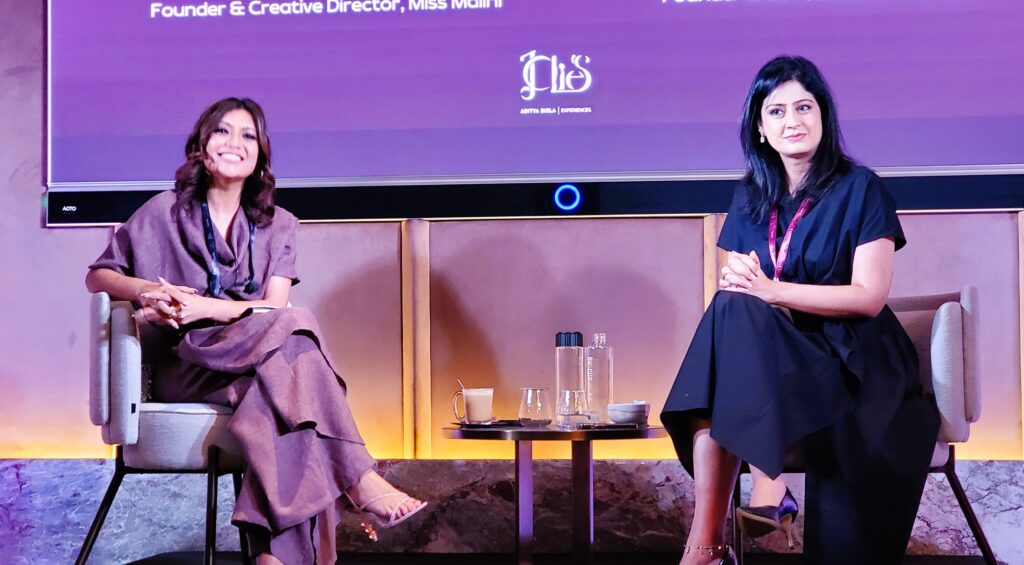
Here are some key insights on the key chat with Malini Agarwal, founder and creative director of MissMalini Entertainment | A Good Creator Co., on Brand Brilliance: Building the bridge between customer and you with Aabha Bakaya. It’s all about branding and building a community.
- Building a brand based on passion, Malini Agarwal was passionate about writing and wanted a space to express herself. She believed that people should focus on finding their passion and building a brand around it.
Knowing your consumer and target audience’s demands is critical for effective branding because it allows you to tailor your message and offerings to resonate directly with them. By understanding their needs, wants, and pain points, you can create a brand identity that speaks to them on an emotional level. This, in turn, fosters trust and loyalty, making them more receptive to your brand and more likely to become customers.
- Finding the right KOLs is crucial because they act as trusted intermediaries between your brand and your target audience. They’ve already established credibility and influence within your niche, so their positive opinions about your product or service carry significant weight. This can significantly impact your target audience’s perception of your brand, fostering trust and encouraging them to adopt similar behaviors, like trying your product or following your brand. Think of KOLs as social proof, validating your brand’s value proposition to potential customers. By strategically partnering with the right KOLs, you can leverage their existing audience and influence to effectively amplify your brand message and reach.

- The importance of community, Malini highlights the importance of building a community around your brand. She created a Facebook group called Miss Malini’s Girl Tribe which is a safe space for women to connect and discuss various topics. She believed that community is the missing piece between brands and consumers.
- Always focus on value over negativity, Malini stopped writing gossip blogs because she realized the negativity it created. She emphasizes that brands should focus on creating value for their audience and avoid negativity and connect with community to grow it.
- On influencer marketing, Malini acknowledged the importance of influencer marketing but believed that the future lies with influencers who can create a community around themselves. She highlighted that the non-celebrity influencers who are trusted by their peers are more effective than big celebrities.
- Malini emhasizes that brands should collaborate with each other instead of competing.
- Malini believes that brands should be transparent and authentic in their communication, resonating with what the community stands for. She would not promote fairness creams because she thinks it sends the wrong message to women. She says that she would be open to feedback from her community and have conversations about her brand choices.
- Authenticity is the bedrock of trust in branding. When you’re genuine and transparent with your customers, you’re essentially saying, “We see you, and we value your intelligence.” This fosters a sense of real connection that goes beyond just a product or service.
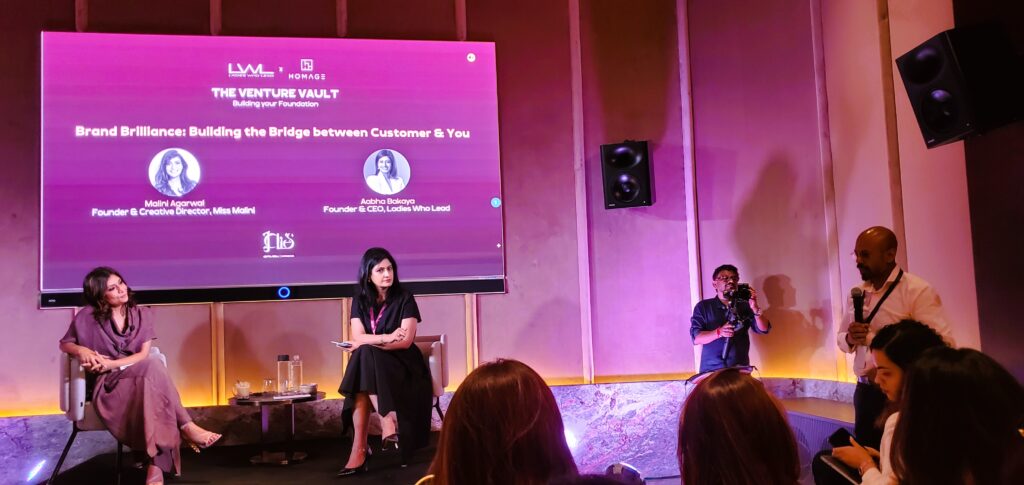
- Malini said, that we have dehumanized followers by focusing on follower count. She emphasizes that brands should see their followers as people and focus on building relationships with them.
She emphasised that we frequently get caught up in the statistics on social media, forgetting about the human people behind them. Malini advised listeners to adjust their perspective: rather than concentrating on the number of followers, acknowledge the importance of those who chose to follow you. When the proper individuals connect with your content, companies have the opportunity to thrive.
- Community building is imperative for your brand’s success because it fosters a loyal and engaged customer base. By creating a space where your target audience can connect with each other and with your brand, you cultivate a sense of belonging and shared values. This not only increases brand loyalty but also provides valuable customer insights. Through active participation in the community, you can understand your audience’s needs and preferences on a deeper level.
However, simply building a community isn’t enough. To truly engage with your members, you need to understand them. Who are they? What are their interests? What kind of content resonates with them? By tailoring your communication and activities within the community to their preferences, you create a more meaningful experience that keeps them coming back for more.
Finally, selecting the right platform is key to effective engagement. Is your audience active on Facebook groups or Reddit forums? Do they prefer visual platforms like Instagram or video-centric platforms like YouTube? Choosing the platform where your target audience already spends their time allows you to reach them organically and foster authentic interactions. This two-pronged approach – understanding your community and selecting the right platform – is critical for building a thriving and brand-boosting community.
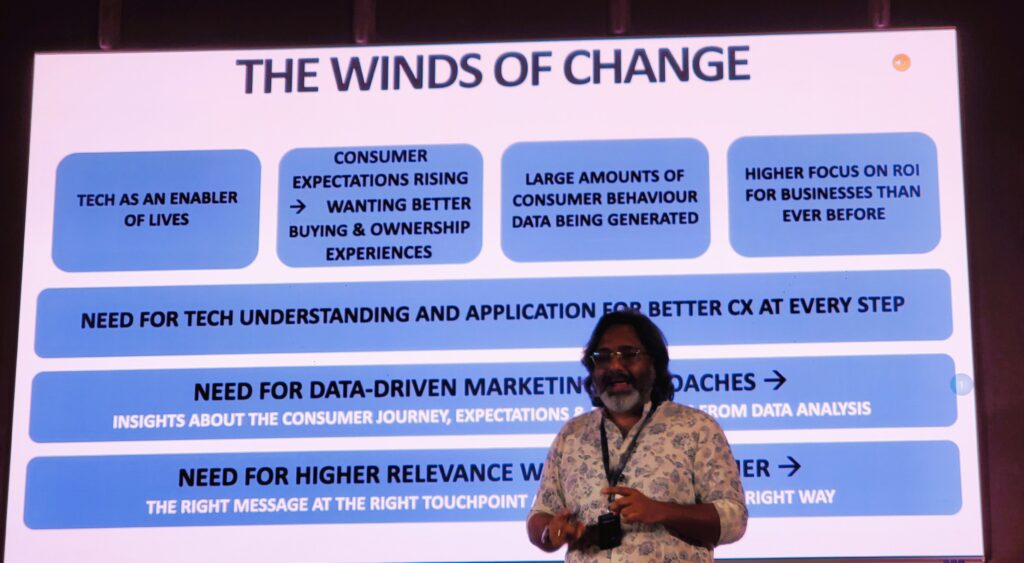
Shouvik Roy’s presentation on Marketing Magic: Building Lasting bonds with Your Audience was an eye opener, Roy says that a long-term story is the first thing that gets neglected when launching a brand. Founders should focus on creating a narrative that will resonate with consumers over time. Building a brand requires storytelling and a long-term vision.
Customer Loyalty is the foundation of Brand Building: Shovik Roy, emphasizes that customer loyalty is central to brand building.
Successful brands are built on storytelling. He cautions founders not to expect immediate results from their branding efforts and advises them to be consistent in their messaging. A brand’s success is determined not only by the product but also by the overall purchasing and ownership experience that leads buyers to prefer one brand over another.[
Roy stresses the importance of understanding the platform when creating content. Content that is created for Youtube will be different from content created for Instagram. Marketers need to consider how users consume information on each platform. Data can inform the stories you tell as a brand. Roy gives the example of lab-grown diamonds. A brand selling lab-grown diamonds needs to understand how to position their product in a way that resonates with consumers who traditionally associate diamonds with luxury and permanence.
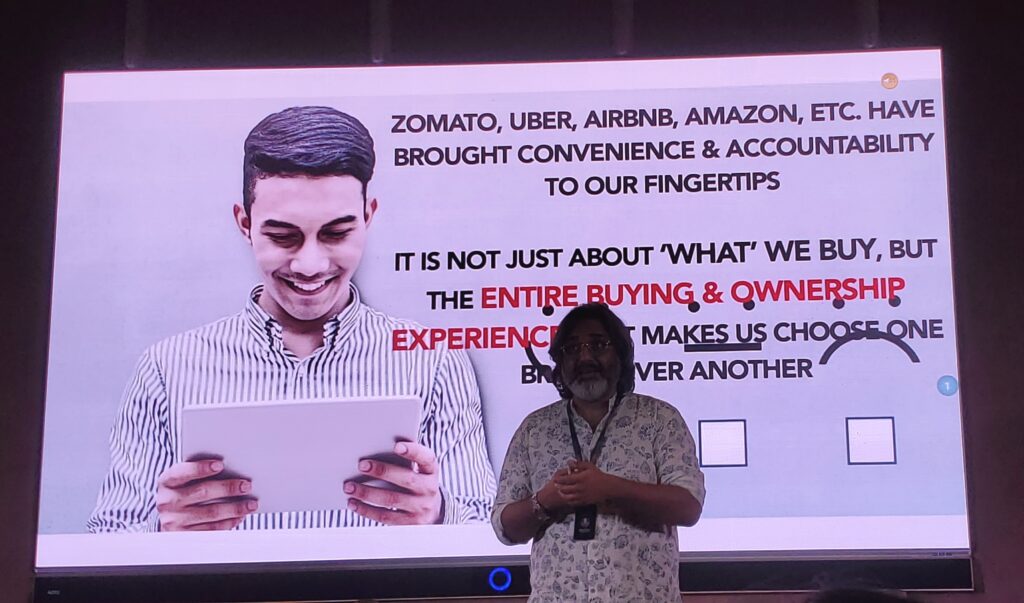
Roy showcases short, scripted videos created for mobile phones as an effective way to communicate brand messages. These videos are designed to be viewed multiple times and leave a lasting impression.
Roy highlights the use of humor as a way to make brands memorable. He uses KFC as an example, showcasing a social media campaign that uses a humorous approach to sell fried chicken.
Roy acknowledged the challenge that established brands face in staying relevant. He emphasized the need for existing brands to embrace new storytelling methods and to be platform-native in their thinking. Knowing your long-term story, budgets, and overall GTM strategy is critical to directing your brand’s growth and success. Roy says that the biggest hurdle that D2C brands face is choosing the right GTM strategy. He says that founders need to be able to find talent who can create a narrative and tell the story of the brand. Building a brand requires talent and narrative development.
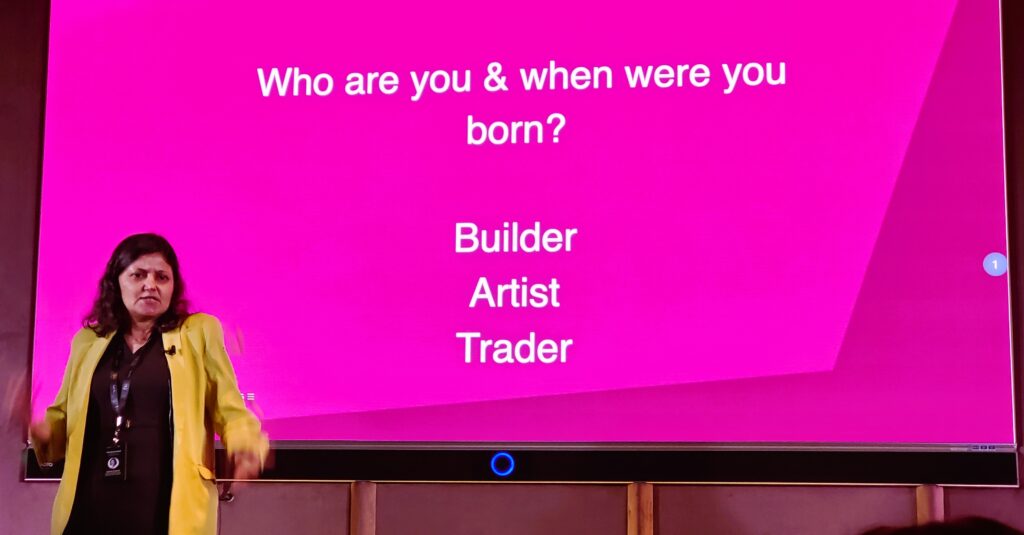
A presentation by Sairee Chahal on Business Analysis and Strategy, Sairee says women must seize chances and make full use of the resources at their disposal. Work appears to be shifting towards resource-based rather than gender-based models in the future. They must trust their instincts – a natural gift – and use them to their advantage in the competitive world of business, or in developing a successful firm from the ground up.
“It’s a woman’s world,” according to Sairee Chahal, a serial entrepreneur, mentor, workflex evangelist, and founder and CEO of SHEROES.in(earlier Fleximoms).
Technology is one such resource that women, especially women entrepreneurs, can and must harness to flourish and thrive. Sairee Chahal also shared her own experiences as a founder. She built sheroes, a platform for women, a founder who builds businesses around women, discusses business analysis and strategy in her talk.
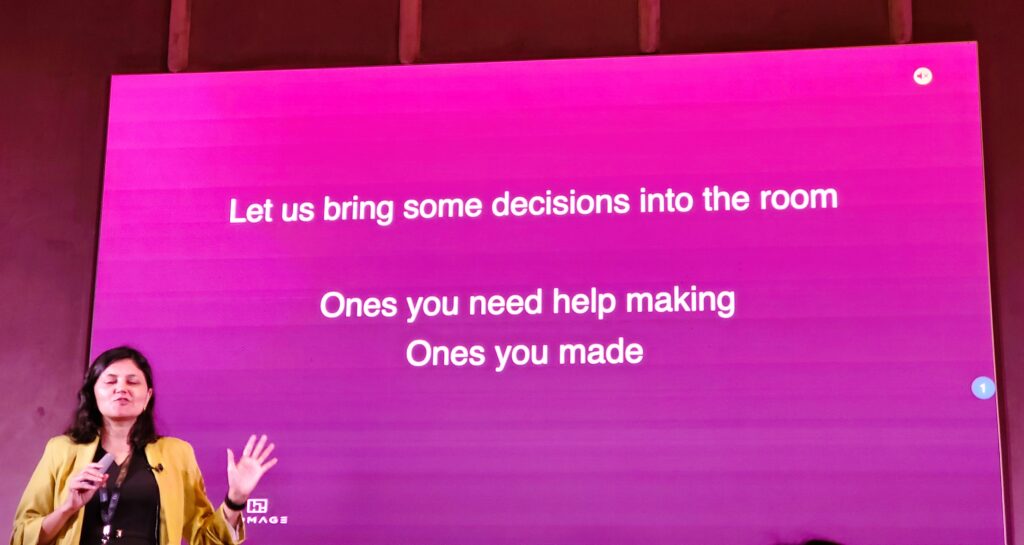
Business is about solving problems and creating value.
When you are passionate about what you do, it shows in your business. Customers can feel the passion behind a brand.
Your business should reflect who you are. Don’t try to be someone or something you are not.
If you have a great business idea, don’t be afraid to take it to the next level. There is a huge market out there for businesses that serve women.
You don’t need a lot of money to get started. Be resourceful and find ways to make things work with limited resources. There is a first-mover advantage to being in a space early.
Build a strong community can help you grow your business. Create a space where people feel like they belong and can support each other.
Don’t get caught up in the hype of venture capital funding. It’s important to build a business that is profitable and sustainable.
As your business grows, find ways to give back to the community.
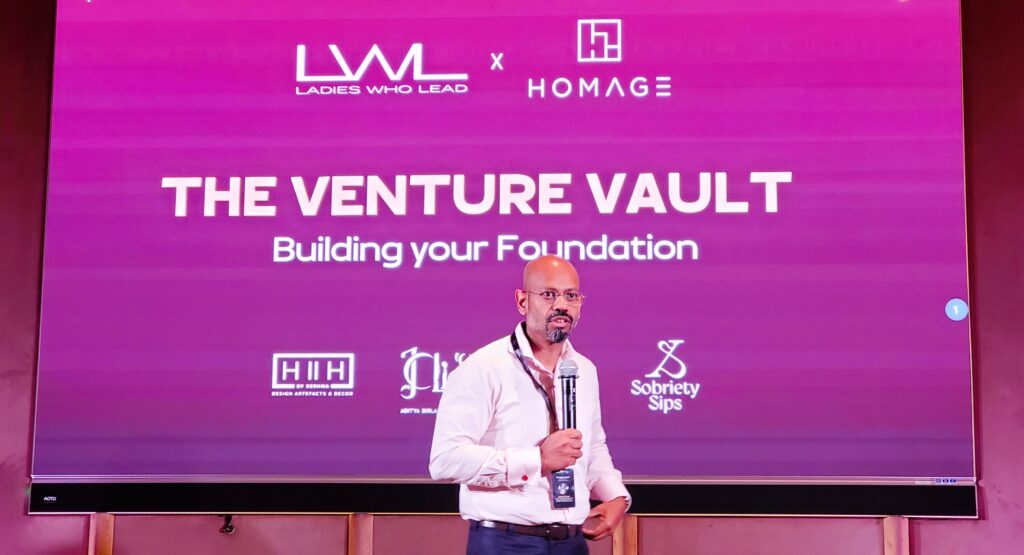
A very insightful talk by Aditya Ghosh on Role of A Leader.
Drawing on personal experience, he explained that the majority of his success is due to the significant connections he has made along the road. He emphasised how cultivating professional connections can open doors, stimulate growth, and pave the path for meaningful partnerships in business and beyond. Self-awareness is a key quality for a leader. Great leaders surround themselves with people who complement their weaknesses, not mirror their strengths.
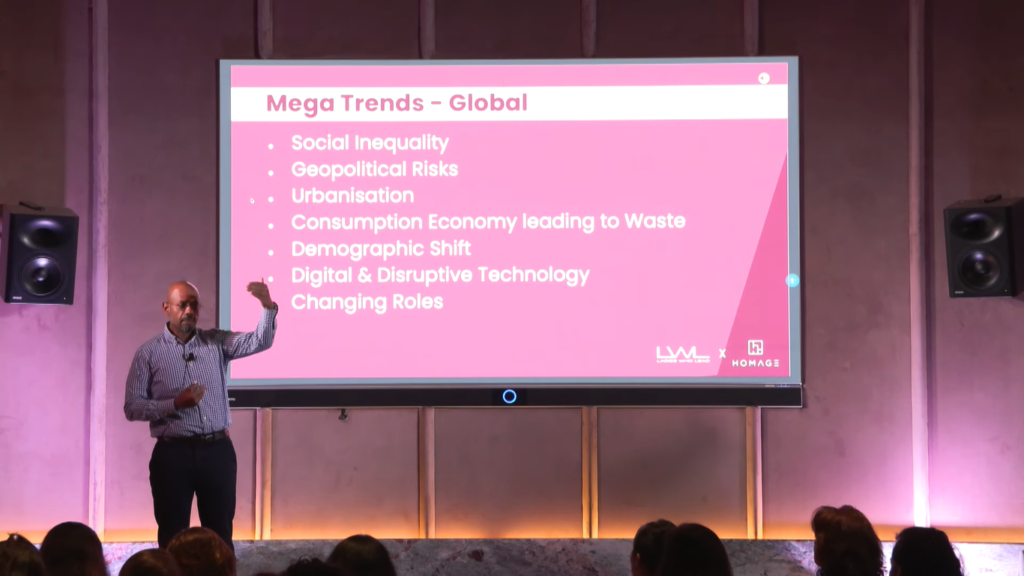
Entrepreneurs should identify a hard problem to solve and focus on creating a solution. Don’t chase trends; look for unmet needs in the market. Define your one significant goal. This goal should act as the guiding concept for all of your company endeavours.
Customer surveys can be misleading because people don’t always prioritize what they say they want. Leaders need to understand the underlying needs of the customer. Understand your target audience’s core demands and desires. While desires may change according to trends and tastes, needs are basic necessities that your products or services should continually meet.
A leader’s role extends beyond their job description. Great leaders inspire and uplift those around them. Build a solid foundation by focusing on the essentials. Accept failure as a normal part of your path, and use it as a chance to learn and grow.
Success takes time and perseverance. Don’t get discouraged by overnight success stories; those are built on years of hard work.
Focus on your dreams. People who are passionate about their personal dreams are more likely to be successful in their careers.
Ghosh also emphasized the importance of building a strong company culture. He highlighted the danger of creating a culture of conformity and argued that companies should value diversity of thought and experience.
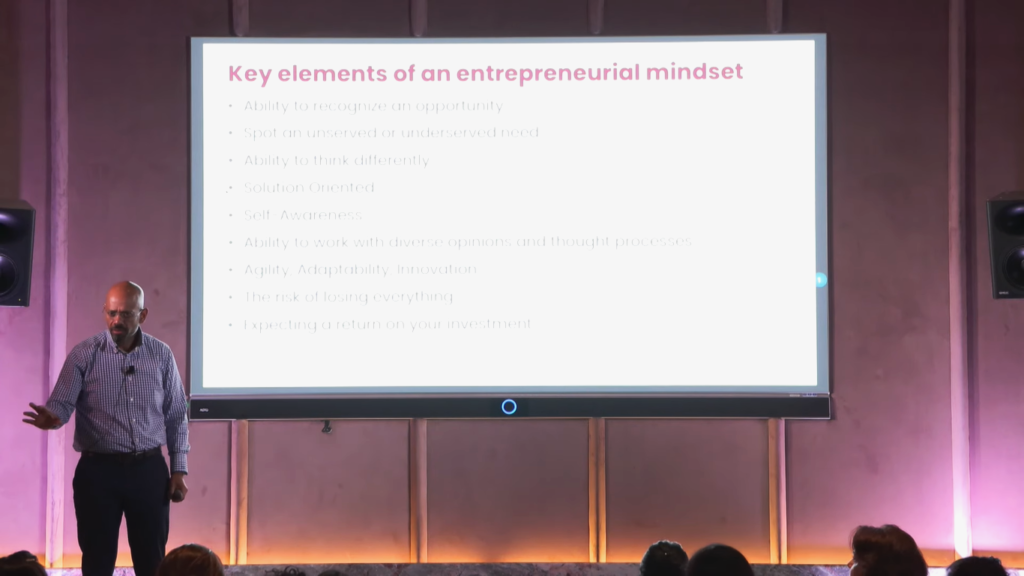
On having an entrepreneurial mindset:
- Embrace Challenges and Identify Opportunities: Great entrepreneurs don’t shy away from difficult problems. They see them as opportunities to create innovative solutions.
- Be Customer-Centric, But Look Deeper: While customer feedback is important, dig beneath the surface to understand their true needs. Don’t just chase trends.
- Take Calculated Risks: Entrepreneurship involves taking calculated risks. Don’t be afraid to step outside your comfort zone, but plan and assess the potential downsides.
- Build a Strong Team: Surround yourself with talented people who complement your skillset. A diverse and capable team is crucial for success.
- Focus on Long-Term Vision: Building a successful business takes time and dedication. Don’t chase quick wins; focus on your long-term vision and goals.
- Passion is Key: Having a strong passion for your idea or mission will fuel your drive and perseverance through challenges.
- Be Adaptable: The business landscape is constantly changing. Be willing to adapt your approach and learn from failures.
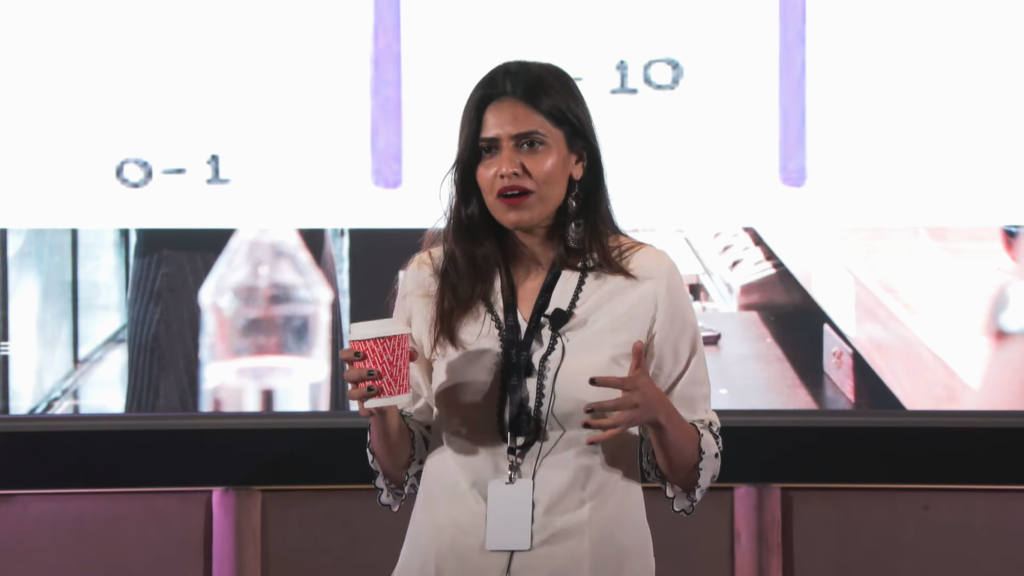
Ahana Gautam, Founder & CEO at Open Secret highlighted on the necessity of continual improvement and how tiny, persistent efforts may lead to tremendous gain over time, presented on Consistency: Importance of Getting the Basics Right.
Building a business and its importance of focusing on processes, consistency, and core values are very important to grow and be connected to consumers/community. Ahana Gautam, the creator of Open Secret, a company that distributes nutritious foods, discussed her entrepreneurial path and the hurdles she encountered at various phases of business growth.
Some key takeaways from the talk:
Focus on finding product-market fit in the early stages of your startup. Identify your particular issue statement and the unique problem you want to tackle. Determine the level of Product-Market Fit (PMF) you are at: 0-1, 1-10, or 10-100. This helps you properly plan your future moves.
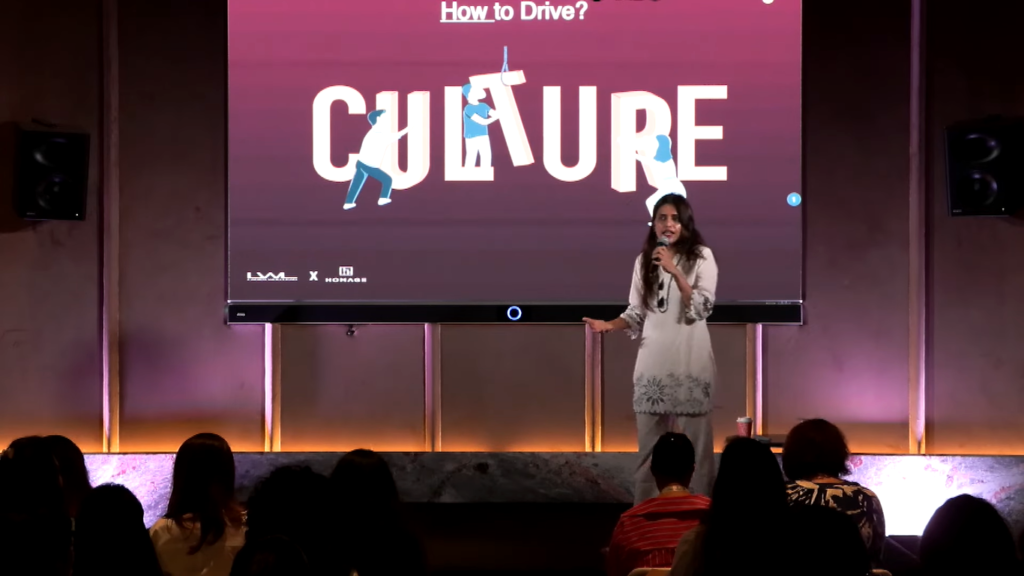
Build processes and ensure consistency as your business scales. She stated that obstacles and issues are unavoidable, but building resilience through these experiences is critical. Your efficacy and success are primarily determined by the quality and strength of your team.
Identify core values that are important for your business and build a strong culture around them. Ahana urged everyone to push themselves beyond their comfort zones, since this is where genuine growth and development take place. While you might be inspired by the cultural characteristics of other organisations, your company’s culture must be distinct and customised to your specific surroundings.
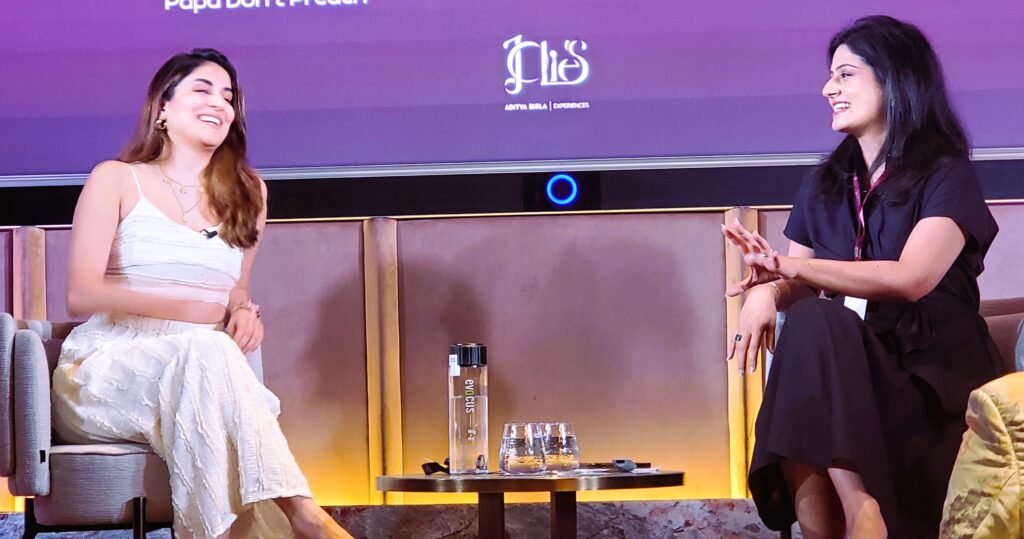
Shubhika Sharma – founder of Papa Don’t Preach with Aabha Bakaya on – My Entrepreneurial Journey; building businesses in India for the world, gave a talk about her entrepreneurial journey and she discussed her unconventional path to fashion design and the importance of staying connected to your core values. Shubhika believes that fashion can be a powerful tool for cultural exchange. Shubhika emphasizes the importance of artisans in the fashion industry. She acknowledges the challenges that artisans face, including low wages, lack of benefits, and poor living conditions. Shubika is vrry against charging fat tax. Charging more for larger body types is absolutely inhumane and degrading to anyone who comes up to you hoping to feel confident and beautiful clothed in your designs.
Shubhika started her career young, managing a boutique at 19 while still in school. She later opened Papa Don’t Preach, which was originally intended to be a High Street fashion brand. However, Shubhika pivoted the business model to reflect the needs of the Indian market and focus on dismantling rigid design guidelines. Papa Don’t Preach is a reflection of my personality, and defiance is in our DNA. That was the source of our hues and patterns.

She recounted her own experiences with money management and reinvesting in her firm. Shubhika discussed the challenges of building a team and the importance of delegation. She also spoke about the importance of staying connected to the evolving needs of your customers. Shubhika ended the talk by emphasizing the importance of staying true to yourself and your vision.
Shubhika emphasised the significance of having a solid strategy and plan in place, as well as identifying the right individuals for key jobs in HR and finance. Shubhika credited her success to her core values of inclusivity, equality, and creativity. She has built a brand that is recognized for its ethical and cruelty-free production practices. Papa Don’t Preach has gained a global following, with Shubhika being invited to speak at Harvard Business School.


After an enriching and a rewarding summit, the networking event followed in the evening to engage in meaningful conversations with experts, to socialize and foster relationships with like-minded individuals. It provided an opportunity for entrepreneurs to exchange ideas, build connections, and discuss potential business opportunities, as they sipped on refreshing Stoli vodka prepared cocktails like Pitch Perfect Picante, Venture Vpdka and others to choose from, while enjoying a delectable selection of starters. The delegates were very immersed in enriching conversations, exchanging ideas and forming meaningful connections.

